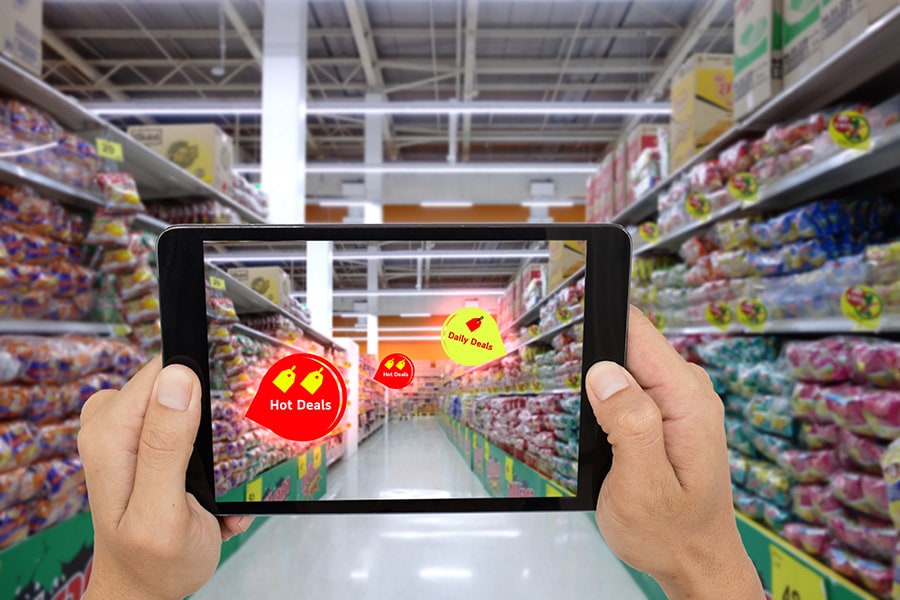
Artificial Intelligence and 21st century marketing
The future of marketing (or Marketing 5.0) is moving from Traditional and Digital to Artificial and Sentient
 Image: Shutterstock
Image: Shutterstock
Artificial Intelligence (AI) is a broad term for technologies that imitate human intelligence. It covers a range of techniques such as voice and image recognition, machine learning techniques and semantic search. Machine Learning Techniques use algorithms to learn from past data, and create predictive models. Other AI applications do the work of human operators.
Marketing has been under pressure since the time rapid technological development disrupted marketing as it was traditionally practiced. Pressure from both highly trackable performance measures and an increase in the activities that marketers have to command has made lives of CMO tougher.
AI has come along as probably the most important technological breakthrough of this century. Marketing stands to be disrupted further. Large technology companies are restructuring themselves around AI. Those who don’t, run the risk of being less capable of creating top class customer experiences.
Though AI is not exactly new, the data and computing capabilities flowing from technological innovation has made it accessible to many. In marketing, AI has been embraced by ad tech agencies to optimize ad campaigns and send emails to cultivate customers and qualify leads. AI will impact activities wherever marketers have to examine data and make decisions based on that data. There is a caveat here for AI using companies: ensure the quality of data that goes into AI is very good. Otherwise, what will result is Garbage In Garbage Out (GIGO). Martech requires quality inputs to generate the expected outcomes.
Besides simplifying marketing processes, improving customer experience, is being attempted by many companies globally. Among others, San Francisco, USA-based Sentient Technologies helps its clients optimize customer experiences and performs Alpha / Beta testing on a very large scale in real time using AI. Reducing time and examining multiple options for best customer response is a capability offered by AI applications which otherwise would have been very tedious and time consuming.
AI will undoubtedly help marketers pick up a lot more of the money that is left on the table in the customer need monetization process. Helping to test hundreds of thousands of combinations of marketing collaterals such as a lead generation form or a point of purchase display can result in big improvements in conversion results. AI will also help marketers to take customer-focus to a whole new level, including the B2B sphere. The opportunity for optimization of individual and organizational needs will be very high.
Customers’ attention span has already narrowed drastically. Digital marketers are painfully aware of a 3-7 seconds window in which to engage with web visitors. Instant gratification is the need of the hour. AI with its machine learning core is capable of keeping marketers aligned with rapidly changing customer needs, preferences and dislikes. Customers expect marketers today to know who each customer is; what her need is; and how to fulfil it. And yet not invade privacy in any unsettling way like Amazon Key or Uber have been known to. Customers want to feel empowered, not emasculated or entrapped.
So how do we respond to the bull in the china shop? It is a given that for starters, the more routine work at most marketing agencies and departments will become automated thus eliminating marketing jobs. The flip side is that the more creative aspect of marketing will continue to be run by humans. At least, in the immediate future. The distant future could be a different ball game as examples from advertising agencies in Japan show which use AI and ML to generate highly creative outputs, often better than what humans can do.
As much as it will take away some jobs, the assurance as per experts is that AI will also create new marketing jobs such as Growth Hackers (those marketers who will work in teams at the cusp of creative marketing, automation and engineering), Agile Marketers (marketers who respond to change rather than follow a plan), Bayesian Strategists (marketers who find the common ground between Big Data and Big Thinking), and Chief Marketing Technologists (marketers who oversee a colliding world of technology and marketing). AI will delight the user experience as well as take away the paralyzingly painstaking work involved in marketing so that those who joined marketing in the first place can soothe their souls with more and more creative work of mining consumer insights and engaging with them.
The future of marketing (or Marketing 5.0) is moving from Traditional and Digital to Artificial and Sentient. With the current “Human created AI” and later “AI that can create AI” in the near future, major disruptions in marketing is the writing on the wall.
Dr. Jones Mathew, Professor, Great Lakes Institute of Management, Gurgaon




